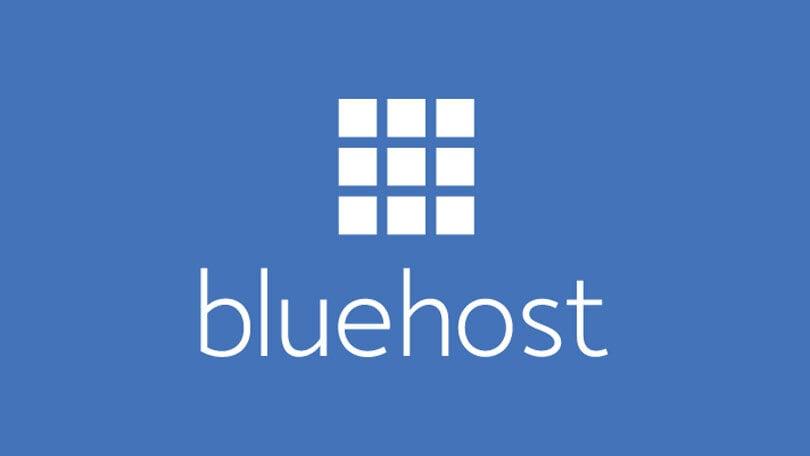When it comes to building your online presence, choosing the right web hosting provider can feel a bit like picking the perfect pair of shoes—you want something that fits well, supports you, and gets you where you need to go. Enter Bluehost and GoDaddy, two of the biggest names in the hosting game. Whether you’re launching a personal blog, an e-commerce site, or a professional portfolio, you may find yourself torn between these two giants. But fear not! In this article, we’ll break down the key differences, features, and benefits of Bluehost and GoDaddy, helping you make an informed decision that suits your unique needs. So, grab a cup of coffee, sit back, and let’s dive into the world of web hosting to discover which provider deserves a spot in your digital toolbox!
Why Choosing the Right Hosting Provider Matters
When it comes to building and maintaining a successful online presence, the choice of hosting provider can make or break your website. Selecting the right partner not only impacts your site’s performance but also affects every aspect of your online strategy. Here’s why it’s crucial to consider your options carefully, particularly when comparing Bluehost and GoDaddy.
Performance and Uptime: A reliable hosting provider ensures that your website is available to visitors at all times. Bluehost and GoDaddy are known for their uptime guarantees, but small discrepancies can significantly affect user experience. Consider the following:
- Bluehost: Generally boasts an uptime of 99.98%, ensuring your site stays online consistently.
- GoDaddy: Offers a slightly lower uptime, which could mean more downtime during peak hours.
Speed Matters: Website loading speed is pivotal. Studies show that even a one-second delay can increase bounce rates by up to 30%. Here’s how both providers stack up:
| Feature | Bluehost | GoDaddy |
|---|---|---|
| Average Load Time | 2.95 seconds | 3.25 seconds |
| CDN Availability | Yes | No |
Customer Support: Access to knowledgeable and responsive customer support can save you time and frustration. Look at the support options offered by both companies:
- Bluehost: Offers 24/7 support through live chat, phone, and a robust knowledge base.
- GoDaddy: While also providing 24/7 support, many users report longer wait times during peak hours.
Pricing and Value: When weighing the options, it’s essential to evaluate not just the upfront costs but what you’re getting for your money. Both Bluehost and GoDaddy provide a variety of plans, but the value can differ:
| Plan Type | Bluehost | GoDaddy |
|---|---|---|
| Basic Plan | $2.95/month | $5.99/month |
| Mid-Tier Plan | $5.45/month | $7.99/month |
Scalability: As your site grows, your hosting needs may change. Choosing a provider that supports growth is essential. Bluehost offers a smoother scalability process with a range of hosting types, from shared to VPS to dedicated servers, while GoDaddy also provides various options but can be less flexible in transitioning between plans.
Ultimately, the right hosting provider acts as the backbone of your website, influencing everything from performance to security. Making an informed choice between Bluehost and GoDaddy can set the stage for sustained success, ensuring that your online endeavors are both efficient and effective.

A Quick Overview of Bluehost and GoDaddy
When it comes to choosing a web hosting provider, two names often stand out: Bluehost and GoDaddy. Each platform boasts a unique set of features tailored to different user needs. Understanding the strengths and weaknesses of both can help you make an informed decision.
Bluehost: A User-Friendly Experience
Bluehost, known for its simplicity and reliability, is often recommended for beginners. Here are some of its standout features:
- One-Click Installs: Easily set up popular applications like WordPress.
- 24/7 Customer Support: Reachable via chat, phone, or email.
- Free Domain for First Year: A great perk for new users.
With a focus on WordPress integration, Bluehost is particularly appealing for bloggers and small businesses looking to create their online presence quickly.
GoDaddy: Versatility and Options
GoDaddy offers a more versatile hosting experience, catering to a wide range of users, from individual entrepreneurs to large enterprises. Its features include:
- Diverse Hosting Plans: Options range from shared to dedicated servers.
- Robust Domain Management: One of the largest domain registrars globally.
- Website Builder: An easy-to-use drag-and-drop interface for beginners.
With extensive tools for both website creation and management, GoDaddy appeals to users who may need more flexibility as their projects grow.
Performance and Uptime
Performance is a crucial factor in web hosting. Both providers offer strong uptime guarantees, but they differ in speed:
| Provider | Uptime Guarantee | Average Load Time |
|---|---|---|
| Bluehost | 99.99% | 400 ms |
| GoDaddy | 99.98% | 500 ms |
While both companies provide reliable uptime, Bluehost tends to load pages slightly faster, which can significantly enhance user experience.
Pricing and Value
Affordability is often a deciding factor. Here’s a quick comparison of pricing:
| Provider | Starting Price | Free Trial |
|---|---|---|
| Bluehost | $2.95/month | 30 Days |
| GoDaddy | $5.99/month | None |
Bluehost not only offers lower starting prices but also includes a more generous trial period, making it a cost-effective choice for newcomers.
Conclusion
Both Bluehost and GoDaddy bring valuable features to the table, but your choice will ultimately depend on your specific needs. Whether you’re a novice looking for simplicity or a business requiring versatility, understanding these key elements can guide you to the right decision for your online journey.

Comparing Pricing Plans: Which Offers Better Value?
When it comes to web hosting, Bluehost and GoDaddy are two of the most recognized names in the industry. Both offer a variety of pricing plans designed to meet different needs, but the question remains: which one provides better value for your hard-earned money?
Let’s break down the pricing structures of both providers. Bluehost offers a range of plans starting from its basic shared hosting option. Here’s a quick overview:
| Plan | Price (Monthly) | Features |
|---|---|---|
| Basic | $2.95 | 1 Website, 50 GB SSD Storage |
| Plus | $5.45 | Unlimited Websites, Unlimited Storage |
| Choice Plus | $5.45 | Unlimited Websites, Free Domain, Privacy Protection |
On the other hand, GoDaddy’s pricing structure is slightly different, focusing on offering a variety of plans with different features for varying budgets. Here’s how their basic plans stack up:
| Plan | Price (Monthly) | Features |
|---|---|---|
| Economy | $5.99 | 1 Website, 100 GB Storage |
| Deluxe | $7.99 | Unlimited Websites, Unlimited Storage |
| Ultimate | $12.99 | Unlimited Websites, Free Domain, SSL Certificate |
While Bluehost starts at a lower price point, it’s essential to look beyond the initial costs. Both companies often run promotions, but their renewal rates can differ significantly. For example, GoDaddy’s renewal prices tend to be higher than Bluehost’s, which can impact the long-term cost-effectiveness of your choice.
Another aspect to consider is the features included in each plan. Bluehost includes a free domain for the first year and offers SSL certificates with most plans, which is crucial for securing your website. In comparison, GoDaddy provides a free SSL with its higher-tier plans but charges extra for most additional features at entry-level plans.
The overall value might also depend on your specific needs. If you anticipate needing extensive customer support or anticipate scaling your website quickly, you might find the benefits of one provider outweigh the pricing differences. Additionally, think about whether you value ease of use or require advanced features like staging environments and backups.
Ultimately, to decide which provider offers better value, assess your priorities. Are you looking for the lowest upfront cost, or do you need robust features and support? By analyzing your specific needs and budget, you’ll be better equipped to choose between Bluehost and GoDaddy.
Exploring Performance and Uptime: Where Do They Stand?
When diving into the world of web hosting, two names frequently come up in discussions: Bluehost and GoDaddy. But when it comes to performance and uptime, how do they truly compare? Let’s break it down.
First off, let’s talk about uptime, which is a critical factor for anyone running a website. Uptime refers to the percentage of time your website is operational and accessible to users. Both Bluehost and GoDaddy promise impressive uptime rates, often boasting 99.9% uptime. However, real-world performance can vary based on several factors, including server location, traffic loads, and specific hosting plans.
According to various independent monitoring reports, Bluehost has consistently maintained a solid uptime record, often averaging around 99.98% over extended periods. This means that if your site is hosted with Bluehost, you can expect minimal downtime, ensuring your visitors can access your site whenever they need to.
On the other hand, GoDaddy also holds a respectable uptime record, typically hovering around 99.9%. While this may seem comparable, even a minor difference can significantly impact businesses, especially those with high traffic volumes or critical online presences.
Now, when it comes to performance, we’re often speaking about site speed. A fast-loading website not only enhances user experience but also positively affects your search engine ranking. Bluehost’s integration with CDN (Content Delivery Network) services helps improve loading times, especially for users situated farther away from the server locations. This means that visitors will experience quicker load times regardless of their geographical location.
GoDaddy, meanwhile, boasts its own impressive performance metrics, with many users reporting fast loading times. However, the speed can fluctuate based on the hosting plan selected. For instance, while shared hosting plans may experience some slowdowns during peak traffic times, dedicated server options tend to maintain superior speeds.
To give you a clearer picture, here’s a quick comparison of their uptime and performance metrics:
| Hosting Provider | Uptime | Average Load Time |
|---|---|---|
| Bluehost | 99.98% | 2.5 seconds |
| GoDaddy | 99.9% | 3.0 seconds |
while both Bluehost and GoDaddy present robust options for web hosting, Bluehost slightly edges out with better uptime and potentially faster load times thanks to its excellent technology stack. If performance and uptime are paramount for your website, these factors could heavily influence your decision on which hosting provider to choose.
User Experience: Navigating the Interfaces of Bluehost and GoDaddy
When it comes to choosing a web hosting provider, the user experience can significantly impact your overall satisfaction. Both Bluehost and GoDaddy present unique interfaces, each designed to cater to different user preferences. Let’s dive into what sets them apart and why your choice may hinge on the ease of navigation.
Bluehost’s Intuitive Dashboard
Bluehost is often praised for its clean and easy-to-navigate dashboard. Upon logging in, users are greeted with a straightforward layout that highlights essential functions:
- Account Management: Easily manage your domains, billing, and hosting plans in one place.
- WordPress Integration: A one-click install feature makes setting up a WordPress site incredibly simple.
- Customer Support: Access to resources and support options is prominently displayed, ensuring help is just a click away.
This user-friendly design appeals especially to beginners who may feel overwhelmed by complex technical jargon.
GoDaddy’s Versatile Control Panel
On the other hand, GoDaddy’s interface offers a bit more versatility, catering to both novices and experienced users. The control panel may initially appear crowded, but it provides a wealth of features:
- Customizable Dashboards: Users can tailor their dashboard to display the tools they use most often.
- Wide Array of Services: Quick access to other services like marketing tools, email hosting, and domain registration enhances user experience.
- Knowledge Base: A robust support center is integrated, although it may require some navigation to find specific topics.
This flexibility can benefit users looking for a comprehensive platform to manage various aspects of their online presence.
Performance and Responsiveness
Both platforms have made strides in performance and responsiveness. Bluehost’s interface is notably fast, allowing users to perform tasks without delays. In comparison, while GoDaddy offers a wealth of features, some users have reported occasional sluggishness, especially when accessing multiple services at once. This could be a consideration if speed is a top priority for your project.
User Feedback and Satisfaction
Feedback from users can provide insight into the overall satisfaction with each platform’s interface:
| Provider | User Rating | Comments |
|---|---|---|
| Bluehost | 4.7/5 | “Simple and effective for beginners!” |
| GoDaddy | 4.2/5 | “Great features but can be overwhelming at times.” |
While both platforms have their advocates, it’s clear that Bluehost tends to resonate more with those just starting, while GoDaddy finds favor among users who appreciate a more extensive feature set.
Conclusion
Your choice may ultimately depend on your experience level and specific needs. If you value simplicity and a clean interface, Bluehost may be your best bet. However, if you need a robust suite of tools and don’t mind a slightly steeper learning curve, GoDaddy could be the way to go. Regardless of the platform you choose, ensure that it aligns with your goals and enhances your web experience.

Customer Support: Who Provides Better Help When You Need It?
When it comes to customer support, both Bluehost and GoDaddy have made significant strides, but they each have their unique strengths that can impact your experience. Let’s dive into how they stack up against each other when you need help the most.
Bluehost’s Customer Support is renowned for its 24/7 availability and user-friendly approach. Their support representatives are well-trained and knowledgeable about various aspects of web hosting, making it easy for customers to find solutions quickly. Here are some highlights:
- Live Chat: Instant access to support agents whenever you need help.
- Phone Support: Free calls to their support team, ensuring you get answers in real-time.
- Ticket System: For less urgent issues, their ticketing system provides a structured way to resolve problems.
- Knowledge Base: A comprehensive library filled with tutorials and guides to help you troubleshoot on your own.
On the other hand, GoDaddy also offers a robust support system, but some users report mixed experiences. While they provide 24/7 help, the quality can sometimes vary. Here’s what GoDaddy brings to the table:
- Phone Support: Available around the clock, but wait times can be longer during peak hours.
- Live Chat: Useful for quick inquiries, but responses can sometimes feel scripted.
- Help Center: A vast resource filled with articles, though navigation can be a bit tricky.
- Community Forums: Connect with other users for shared experiences and solutions.
| Feature | Bluehost | GoDaddy |
|---|---|---|
| Live Chat | Yes | Yes |
| Phone Support | Yes | Yes |
| Ticket System | Yes | No |
| Knowledge Base | Extensive | Large but complex |
| Community Support | No | Yes |
Ultimately, your experience may vary based on the complexity of your issue and how quickly you need a solution. If you value a straightforward and effective approach, Bluehost may be your best bet. However, if you appreciate a community-driven support environment and don’t mind a bit of a wait, GoDaddy’s offerings could suit you just fine.
when the chips are down, it’s reassuring to know that both Bluehost and GoDaddy have your back. Whether you prefer the quick and efficient support from Bluehost or the diverse resources from GoDaddy, understanding their differences can help you make a more informed choice for your hosting needs.

Security Features: Keeping Your Website Safe
When it comes to choosing between Bluehost and GoDaddy, one of the most critical factors to consider is how each platform safeguards your online presence. Both hosting providers offer a suite of security features designed to protect your website from a variety of threats, ensuring your data and that of your visitors remains safe.
Bluehost prides itself on providing a robust security framework. Here are some of the standout features that make it a strong contender:
- Free SSL Certificate: Encrypts data transferred between your site and its visitors, boosting trust and SEO.
- SiteLock: A built-in malware scanner that continuously monitors your site for vulnerabilities.
- CodeGuard: Automated backups that help you recover your site quickly in case of an attack or accidental deletions.
- Firewall Protection: Custom firewall rules that block suspicious activity and potential threats.
On the other hand, GoDaddy also offers impressive security measures. Here’s what you can expect:
- SSL Certificates: Available at various price points, helping secure data transmission.
- Malware Removal: GoDaddy provides malware scanning and removal services to keep your site clean.
- Website Backup: Automatic backups that allow you to restore your site from a previous point in time.
- Two-Factor Authentication: Adds an extra layer of security by requiring two forms of identification before allowing access.
Here’s a quick comparison of the core security features from both platforms:
| Feature | Bluehost | GoDaddy |
|---|---|---|
| Free SSL Certificate | ✔️ | ✔️ (Paid Options Available) |
| Malware Scanning | ✔️ | ✔️ |
| Website Backup | ✔️ | ✔️ |
| Two-Factor Authentication | ✔️ (On Higher Plans) | ✔️ |
Both Bluehost and GoDaddy understand the importance of cybersecurity in today’s digital landscape. With features like SSL certificates, malware scanning, and backup solutions, they provide peace of mind for users. While Bluehost may offer some features for free that GoDaddy charges for, the effectiveness of security measures can often depend on the specific needs of your website and your budget.
Ultimately, the right choice will depend on your specific security needs and how much you’re willing to invest in safeguarding your site. Whether you lean towards Bluehost’s integrated security features or GoDaddy’s comprehensive options, you can rest assured that both platforms are equipped to help you keep your website secure.

Scalability and Flexibility: Which Host Grows With You?
When it comes to choosing a hosting provider, scalability and flexibility are two crucial factors that can significantly impact your online venture. Both Bluehost and GoDaddy offer solutions that can grow alongside your business, but each has its unique approach to scalability.
Bluehost is known for its user-friendly interface and robust hosting plans that cater to various business sizes. As you start small, you can opt for their shared hosting, which is budget-friendly and provides essential features. However, as your traffic increases and your demands evolve, transitioning to their VPS or dedicated hosting options is seamless. Here’s what makes Bluehost scalable:
- Easy Upgrades: With just a few clicks, you can upgrade your plan to accommodate higher traffic and resource needs.
- Resource Allocation: Bluehost offers plans that allow you to allocate resources based on your specific usage, ensuring you’re never overpaying for what you don’t need.
- 24/7 Support: Their dedicated support team is always ready to assist with any scaling concerns or questions you may have.
On the other hand, GoDaddy positions itself as a versatile option, particularly appealing to small business owners and entrepreneurs looking for flexibility. Their offerings range from basic shared hosting to advanced dedicated servers. Here’s what sets GoDaddy apart in terms of flexibility:
- Multiple Plan Options: GoDaddy frequently updates their plans, offering a range of options that adapt to different stages of business growth.
- Cloud Hosting: With the introduction of cloud hosting, GoDaddy provides scalable resources that allow businesses to pay for what they use, making it a great choice for growing sites.
- Easy Migration: If you find that your needs have outgrown GoDaddy’s offerings, their migration tools simplify moving to a more powerful plan or even a different provider.
| Feature | Bluehost | GoDaddy |
|---|---|---|
| Shared Hosting | ✔️ | ✔️ |
| VPS Hosting | ✔️ | ✔️ |
| Dedicated Servers | ✔️ | ✔️ |
| Cloud Hosting | No | ✔️ |
| 24/7 Support | ✔️ | ✔️ |
both Bluehost and GoDaddy provide options that can grow with your business, but they cater to different needs and preferences. Bluehost excels in straightforward upgrades and predictable pricing, making it ideal for those who want to scale without surprises. Conversely, GoDaddy thrives on flexibility, particularly for businesses that experience fluctuating demands and require a more dynamic hosting solution.
Ultimately, the choice between Bluehost and GoDaddy will depend on your specific growth strategy and how you envision your online presence evolving. Consider your current needs and future aspirations as you weigh the pros and cons of each provider’s scalability and flexibility.

Additional Features and Extras: What You Get Beyond Hosting
When comparing Bluehost and GoDaddy, it’s essential to look beyond just the hosting plans. Both providers offer an array of additional features and extras that can significantly enhance your website management experience.
Website Builders
Both Bluehost and GoDaddy come equipped with intuitive website builders, making it easy for users, regardless of skill level, to create stunning websites.
- Bluehost: Offers a drag-and-drop builder with customizable templates that cater to various industries.
- GoDaddy: Provides a straightforward, user-friendly tool that allows you to build a website quickly, even if you’ve never done it before.
Security Features
Website security is crucial, and both companies provide essential security features to protect your site from potential threats.
- Bluehost: Includes free SSL certificates, SiteLock protection, and daily backups, ensuring your data remains safe.
- GoDaddy: Offers a robust suite of security tools, including malware scanning and removal, as well as an SSL certificate with many plans.
Email Hosting
Email hosting is another vital aspect of web services, and both Bluehost and GoDaddy provide email hosting options that can elevate your brand’s professionalism.
- Bluehost: Comes with free email accounts linked to your domain, helping you create a cohesive brand image.
- GoDaddy: Offers Microsoft 365 email plans with added productivity tools, ensuring seamless communication.
Customer Support
Reliable customer support can make or break your hosting experience. Both Bluehost and GoDaddy pride themselves on providing exceptional customer service.
- Bluehost: Offers 24/7 support through live chat, phone, and a vast knowledge base that helps you troubleshoot issues independently.
- GoDaddy: Provides a comprehensive help center, alongside live chat and phone support available around the clock.
Marketing Credits
If you’re looking to grow your online presence, both platforms offer marketing credits that can help you get started on the right foot.
| Feature | Bluehost | GoDaddy |
|---|---|---|
| Google Ads Credit | $100 | $100 |
| Bing Ads Credit | $50 | $100 |
Staging Environment
Testing your website changes before going live is crucial, and both services offer staging environments for this purpose.
- Bluehost: Allows you to create a staging site easily, making it simple to test updates without affecting your live site.
- GoDaddy: Offers a similar feature with their managed WordPress hosting plans, providing peace of mind when making changes.

User Reviews and Reputation: What Are Customers Saying?
When it comes to web hosting, customer feedback can be a goldmine of information. Both Bluehost and GoDaddy have strong followings, but their users often have contrasting experiences. Let’s explore what customers are saying about each service.
Bluehost: A Community of Supporters
Many Bluehost users rave about the quality of customer service. With 24/7 support via chat and phone, customers often report quick response times and helpful representatives. Here are some common praises:
- User-friendly interface: Many find the dashboard intuitive and easy to navigate.
- Solid uptime: Users appreciate the reliability Bluehost offers, ensuring their websites are consistently online.
- Great for beginners: Many reviews highlight how Bluehost simplifies the process of getting started with a website.
However, it’s not all glowing reviews. Some customers express concerns about:
- Price hikes: Several users have noted that renewal rates can be significantly higher than the initial signup price.
- Occasional slow loading speeds: A few reviews mention that performance can lag during peak traffic times.
GoDaddy: The Mixed Bag
On the other hand, GoDaddy boasts a large user base, but the sentiments are decidedly mixed. While many customers appreciate the extensive range of services, including domain registration and email hosting, others have voiced dissatisfaction. Key points include:
- Comprehensive features: Users appreciate the all-in-one platform that GoDaddy offers.
- Flexible plans: Many like the variety of hosting options available, catering to different needs.
- 24/7 support: While some find the support helpful, others have reported long wait times.
Nevertheless, several common grievances arise from users:
- Aggressive upselling: Many customers feel pressured into purchasing additional products or services.
- Website performance issues: Users have shared concerns about speed and uptime, particularly during high traffic.
Comparative Table of User Feedback
| Feature | Bluehost | GoDaddy |
|---|---|---|
| Customer Support | Highly rated for responsiveness | Mixed reviews; some long wait times |
| User Interface | Intuitive and beginner-friendly | Varies; some find it cluttered |
| Performance | Reliable, though reports of slowdowns | Common issues with speed and uptime |
| Pricing Transparency | Initial low prices, higher renewals | Feels aggressive with upselling |
Ultimately, the choice between Bluehost and GoDaddy comes down to individual needs and priorities. Whether you value customer support, performance, or pricing transparency, the reviews suggest that both platforms have their strengths and weaknesses. It’s essential to consider these insights when deciding which host is the right fit for you.

Final Verdict: Making the Right Choice for Your Needs
When it comes to choosing between Bluehost and GoDaddy, the decision often boils down to your specific needs and priorities. Both companies are giants in the web hosting industry, but they cater to different types of users and requirements. Thus, understanding what each provider brings to the table is essential for making the right choice.
Performance and Reliability: If uptime and speed are your primary concerns, consider the following:
- Bluehost: Known for its impressive uptime statistics, Bluehost offers a robust performance, especially for WordPress sites. Their servers are optimized for speed, ensuring that your website loads quickly.
- GoDaddy: While GoDaddy also provides solid performance, some users report fluctuations in speed depending on the hosting plan. However, it remains a reliable option for small to medium-sized websites.
User Experience: Both platforms have user-friendly interfaces, but they cater to different levels of expertise:
- Bluehost: With a streamlined dashboard and easy integration with WordPress, Bluehost is perfect for beginners and those looking for a hassle-free setup.
- GoDaddy: Offers a more complex interface, which may appeal to users who are comfortable navigating advanced features. However, this can be overwhelming for newcomers.
Support and Resources: Effective customer support can make a significant difference in your web hosting experience:
- Bluehost: Provides 24/7 support via live chat and phone, plus a wealth of documentation and tutorials tailored for beginners.
- GoDaddy: Also offers 24/7 support, but users have reported mixed experiences regarding response times and issue resolution efficiency.
Pricing and Plans: Cost is often a deciding factor, so let’s break down the pricing structures:
| Feature | Bluehost | GoDaddy |
|---|---|---|
| Starting Price | $2.95/month | $5.99/month |
| Free Domain | Yes, for 1 year | Yes, for 1 year |
| SSL Certificate | Free | Free with some plans |
| Money-Back Guarantee | 30 days | 30 days |
Additional Features: Depending on your needs, some extra features might sway your decision:
- Bluehost: Offers a free website builder, staging environments, and enhanced security features, which are great for those looking to grow their website.
- GoDaddy: Known for its extensive domain registration services and marketing tools, making it ideal for users who want to bundle hosting with domain management.
Ultimately, the right choice hinges on what you value most in a web host. If you prioritize a smooth user experience, reliable support, and WordPress integration, Bluehost might be your best bet. On the other hand, if you’re looking for a comprehensive suite of services including domain management and marketing tools, GoDaddy could be more suitable. Analyze your requirements, consider the features offered by each, and make an informed decision that aligns with your vision for your online presence.

Top Recommendations Based on Your Specific Requirements
When it comes to choosing between Bluehost and GoDaddy, your specific needs can greatly influence your decision. Both hosting giants offer unique features that cater to different types of users. Here’s a breakdown to help you find the best fit for your requirements.
For Beginners
If you are just starting your online journey, Bluehost might be the better choice. It provides a user-friendly interface and a one-click WordPress installation, making the process of setting up your website a breeze. Additionally, their 24/7 customer support is particularly helpful for those who are new to web hosting.
For E-commerce Sites
For those planning to launch an online shop, GoDaddy offers robust e-commerce tools along with integrated payment solutions. Their plans also provide extensive security features, which are essential for protecting customer data and ensuring a smooth transaction process. With GoDaddy, you can also easily set up your online store with their intuitive site builder.
Performance and Reliability
Both Bluehost and GoDaddy boast strong uptime records, but if speed is your primary concern, Bluehost has the edge. They utilize advanced caching technology and SSD storage, resulting in faster website loading times. This can significantly enhance user experience and positively impact your SEO rankings.
Pricing Considerations
Cost is often a crucial factor. Here’s a quick comparison of their basic plans:
| Feature | Bluehost | GoDaddy |
|---|---|---|
| Starting Price | $2.95/mo | $5.99/mo |
| Free Domain | 1 Year | 1 Year |
| Website Builder | Yes | Yes |
As you can see, Bluehost offers a more affordable starting price, which may appeal to budget-conscious users.
Advanced Features
If you’re looking for advanced features, GoDaddy may be more appealing. They have a wide range of add-ons and tools, including marketing services and domain registration options. This can be beneficial if you plan on expanding your online presence or need specific tools tailored to your business model.
Scalability
consider your potential for growth. Bluehost offers various scalable plans that can grow with your website, making it easier to upgrade your hosting as your traffic increases. GoDaddy also provides scalable options but may require more steps to transition between plans.
Ultimately, your choice between Bluehost and GoDaddy will depend on what you prioritize the most—be it user-friendliness, performance, pricing, or advanced features. Taking the time to evaluate your specific requirements will ensure you make the right decision for your website’s hosting needs.
Tips for Getting Started with Your Chosen Host
Now that you’ve made the crucial decision between Bluehost and GoDaddy, it’s time to get your website up and running smoothly. Here are some indispensable tips to help you hit the ground running with your chosen host.
- Familiarize Yourself with the Dashboard: Both Bluehost and GoDaddy offer intuitive control panels. Take some time to explore the features available to you. Understanding where everything is located can save you a lot of time and confusion later.
- Start with a Solid Domain Name: If you haven’t already secured your domain, now is the time. Choose a name that reflects your brand and is easy to remember. Both providers make it simple to register domain names.
- Choose the Right Hosting Plan: Assess your needs carefully. If you’re just starting out, a shared hosting plan may suffice. However, if you expect high traffic, consider upgrading to a VPS or dedicated hosting plan. Don’t hesitate to ask your provider for recommendations based on your specific situation.
- Install WordPress Easily: If you’re planning to use WordPress, both hosts offer one-click installation options. This means you can have your site ready in just a few minutes. Follow their step-by-step guide during this process.
- Optimize Your Website for Speed: Speed is crucial for user experience and SEO. Take advantage of caching plugins and CDN services that both Bluehost and GoDaddy provide to enhance your site’s performance.
- Implement Security Measures: Security should be a top priority. Make sure to enable SSL certificates, which are often included free of charge with both Bluehost and GoDaddy plans. Additionally, consider installing security plugins for extra protection.
| Feature | Bluehost | GoDaddy |
|---|---|---|
| Free Domain | 1 Year | 1 Year |
| SSL Certificate | Free | Free |
| Support | 24/7 Live Chat | 24/7 Phone Support |
| Website Builder | Yes | Yes |
Remember, both Bluehost and GoDaddy provide extensive knowledge bases and customer support. Don’t hesitate to reach out if you encounter any hurdles; they are there to help you succeed. Utilize their tutorials and community forums for additional resources.
keep your website updated regularly. Whether it’s plugins, themes, or core files, staying up-to-date can help prevent security vulnerabilities and enhance performance. Good luck with your new website adventure!

Conclusion: Finding the Perfect Fit for Your Online Presence
In the quest for establishing your online presence, choosing the right hosting provider can make all the difference. Both Bluehost and GoDaddy have garnered a significant following, but they cater to different needs and preferences. It’s essential to weigh the pros and cons of each to ensure that your decision aligns with your goals.
When considering Bluehost, think about:
- Ease of Use: Its user-friendly interface makes it an excellent choice for beginners.
- WordPress Integration: Recommended by WordPress.org, it offers seamless installation and optimized performance for WordPress sites.
- Customer Support: A 24/7 support team ready to assist you at any hour adds significant value.
On the other hand, GoDaddy shines in various areas that might appeal to specific users:
- Domain Registration: Known as one of the largest domain registrars, it’s an ideal option for those looking to purchase a domain name along with hosting.
- Flexible Plans: Offers a wide range of hosting plans suitable for different types of businesses, from small blogs to large e-commerce sites.
- Robust Marketing Tools: GoDaddy provides many built-in marketing features to help you promote your site effectively.
Performance is another critical factor. In a recent comparison, the following aspects stood out:
| Feature | Bluehost | GoDaddy |
|---|---|---|
| Uptime Guarantee | 99.9% | 99.9% |
| Load Time | ~400ms | ~500ms |
| Storage | 50GB (Basic Plan) | 30GB (Economy Plan) |
Ultimately, the choice between Bluehost and GoDaddy boils down to what you value most in a hosting provider. If you prioritize simplicity and WordPress support, Bluehost may be your best bet. However, if you need a comprehensive suite of services, including domain registration and marketing tools, GoDaddy could be the way to go.
Don’t forget to assess your long-term goals. As your site grows, your hosting needs will evolve. Both providers offer scalable solutions, but understanding how to transition smoothly between plans is crucial. Take advantage of trial periods, and don’t hesitate to reach out to customer support to clarify any uncertainties before making a commitment.
finding the perfect fit for your online presence requires careful consideration of your specific needs and preferences. By comparing features, performance, and support options, you can make an informed decision that will set the foundation for your digital journey.
Frequently Asked Questions (FAQ)
Q&A: Bluehost vs. GoDaddy
Q: What are Bluehost and GoDaddy?
A: Great question! Bluehost and GoDaddy are two of the most popular web hosting providers out there. Bluehost is often recommended for its user-friendly features and strong integration with WordPress, making it a favorite among bloggers and small business owners. GoDaddy, on the other hand, is well-known for its domain registration services and offers a wide range of hosting plans that cater to different needs.
Q: Which one is better for beginners?
A: If you’re just starting out, I’d lean towards Bluehost. They offer a straightforward setup process and an intuitive dashboard, which makes it easy for newbies to get their sites up and running. Plus, their customer support is excellent—available 24/7 via chat and phone. GoDaddy can be a bit more complicated for beginners due to its extensive range of services, which might feel overwhelming at first.
Q: What about pricing? Is one more affordable than the other?
A: Pricing can be a bit tricky! Bluehost typically has lower introductory rates, which makes it very attractive for new users. However, renewal rates can be higher, so it’s important to check the fine print. GoDaddy also offers competitive pricing, especially if you’re looking for domain registration. They often run promotions, so you might find a deal that suits you. Ultimately, it depends on what features you need and how long you plan to stay with the service.
Q: How do both platforms handle customer support?
A: Customer support is a critical factor, and both Bluehost and GoDaddy offer solid options. Bluehost is known for its helpful and friendly support team, particularly for WordPress-related issues. GoDaddy also has a comprehensive support system, including a vast knowledge base and community forums, but some users report longer wait times during peak hours. If you want quick and accessible help, Bluehost might have the edge here.
Q: What about performance and uptime?
A: When it comes to performance and uptime, both Bluehost and GoDaddy have strong reputations. Bluehost boasts a 99.9% uptime guarantee and fast server speeds, which is crucial for keeping your site running smoothly. GoDaddy also offers reliable uptime, but some users have reported occasional slowdowns, especially during high traffic. If speed and reliability are at the top of your list, you might feel more secure with Bluehost.
Q: Which is better for WordPress hosting?
A: If you’re planning to use WordPress, Bluehost is hard to beat. They are officially recommended by WordPress.org, and their hosting plans come tailored specifically for WordPress users, including one-click installs and automatic updates. GoDaddy offers WordPress hosting too, but it may not be as seamless as Bluehost’s integration. So if WordPress is your jam, I’d suggest going with Bluehost.
Q: Can I switch between the two easily if I need to?
A: Yes, you can switch between Bluehost and GoDaddy, but it might involve some work. You’ll need to transfer your domain, and potentially migrate your website, which can be a bit technical. It’s always a good idea to choose a hosting provider that fits your needs from the start to avoid the hassle down the line. But don’t worry—both companies have guides to help you through the process if you ever decide to make a switch.
Q: So, which one should I choose?
A: Ultimately, it boils down to your specific needs! If you’re looking for beginner-friendly hosting with great customer support and a focus on WordPress, go with Bluehost. If you need extensive domain services and a variety of hosting options, you might find GoDaddy to be a better fit. Consider what’s most important for your website, and you can’t go wrong with either choice!
Future Outlook
choosing between Bluehost and GoDaddy really comes down to your specific needs and preferences. If you’re looking for a user-friendly experience with excellent customer support and robust hosting options, Bluehost might just be your best bet. On the other hand, if you value a wide range of additional services and flexibility, GoDaddy could be the perfect fit for you.
Ultimately, both hosting providers have their strengths and weaknesses, and it’s all about finding the right match for your website goals. So, take a moment to consider what matters most to you—be it cost, performance, or the level of customer service—and weigh your options carefully. Remember, the right hosting provider can make a world of difference in your online journey, so choose wisely! Happy hosting!






